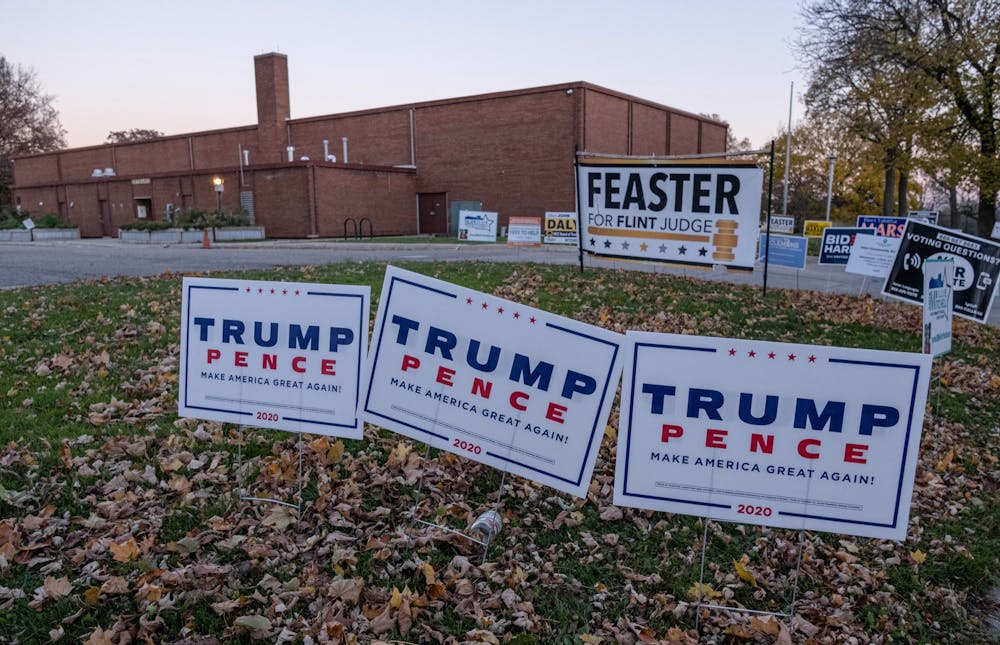Election night 2020 is well over and the race has been called. Though many have accepted the results and are celebrating, the incumbent president has refused to concede the race, actively calling the results fraud and fighting to overturn the results.
When the leader of a country blatantly lies and says an election was stolen from him, it presents problems both for the government itself and the people he governs. Especially when that leader has a history of calling for violence, racism, sexism and more.
President Donald Trump has called on his supporters to “Knock the crap out of him, would you? I promise you, I will pay your legal fees,” and has made many other statements encouraging violence or threatening to purport violence, often against minority groups.
This pattern in the U.S. has been acted out over the past four years during the Trump administration.
Hate crimes have increased since Trump was elected president in 2016, causing the number of hate crimes since 2016 to rise significantly each year. According to the Hate Crime Statistics Act (HCSA) report released by the FBI, there were 7,314 hate crimes in 2019, only second to the 7,783 hate crimes reported in 2008, more than a decade prior.
The most recent examples include the supposed suicides of several Black men during the height of the protests for George Floyd, Breonna Taylor and others, and the mysterious death of Quawan Charles.
In an interview with Luzane Draughon of the Indiana Daily Student, Maurer School of Law professor William D. Popkin said he thinks Trump will continue to create division in the U.S.
“He’s not going to go quietly. He will continue to fan the flames of division,” he said.
Given the recent recruitment from KKK flyers and other white supremacist groups, and the many instances of police killings and brutality this year alone, there is cause for concern for those in the BIPOC community.
We have already seen the protests and counter-protests about the results of the election. There is a rising anger over what Trump’s base is calling a stolen election. As a result, there are bound to be more instances of racial violence in the coming weeks, and even after Biden is inaugurated in January.
For IU students who attend a predominately white institution, the potential danger is even more apparent.
Bloomington is just a 30-minute drive from Martinsville, one of the hundreds of former sundown towns. Bloomington has had its own history of racism and racial violence, recently on display in the pro-police rally this summer, and the assault on Vauhxx Booker.
IU sophomore and computer science major Sophia Zhang said she has been afraid for her safety in Bloomington and other places in Indiana.
“I have been afraid for my safety in general in Martinsville, Bloomington and even Fishers,” she said. “I’ve had people yell racial slurs at me from cars and even have been the target of really gross disgusting men.”
She expressed concern over violence on the part of Trump’s followers saying they aren’t afraid to be blatantly hateful toward any marginalized group. Zhang believes the lack of concession in this election is not helping.
“I laugh at his buffoonery, but also cry on the inside because Trump is a very scary man who pushes very hateful ideology. I think he inspires groups like Proud Boys and it’s genuinely terrifying,”she said.
It is important in these coming weeks and months that the BIPOC community, women, the LGBTQ+ community and other marginalized groups be aware and be safe as we anticipate the continued blowback from Trump himself, as well as his followers.
Zhang leaves us with this advice: “Don’t be alone at night or when it starts to get dark. Have your location shared with loved ones at all times. Try to avoid areas known for hateful acts or attitudes.”
In the statement put out by IU President Michael McRobbie, he stressed the importance of civility and respect around the results of this election, saying, “The voters have spoken, and we can now move forward and continue the vital educational and research work of Indiana University.”
While the optimism of some IU faculty and students is admirable, it is important to remain vigilant.






